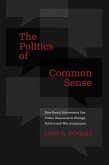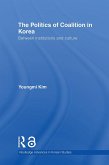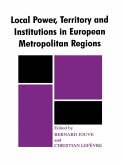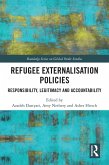In this book, Christina Zuber outlines a theory of ideational policy stabilization to explain stable policy choices despite changing incentives. Historical legacies are frequently invoked in popular and academic accounts of the politics of migration, but the mechanisms of transmission are left underspecified. This work contributes to research on migration and to theories of public policy by arguing that the missing link between past events and present choices is ideational: initially a historical constellation of interests leads actors to defend policy ideas that match the historical environment, but over time, ideas can detach themselves from interests and stabilize into societal dispositions (shared values and identities). This occurs if elites build a discursive consensus around a policy idea, and if bureaucrats develop concomitant policy practices. The book's empirical section analyses ideational stabilization in Catalonia (Spain), which takes an inclusive approach to immigration, and in South Tyrol (Italy), where immigration is framed as a threat. The comparison shows that these differences can be explained by the political economy of historical industrialization and internal migration. Catalans were in the driving seat of industrialization, receiving unskilled migrant workers from the rest of Spain to boost their own economy. South Tyroleans, on the other hand, were in the passenger seat, perceiving incoming Italians as colonizers. Over time, socioeconomic conditions changed, and internal migration was replaced with international migration. Yet with historical ideas having stabilized into dispositions, political and administrative elites continued to understand immigration through the now-obsolete perspective of economic opportunity in Catalonia and ethnic competition in South Tyrol. Transformations in Governance is a major academic book series from Oxford University Press. It is designed to accommodate the impressive growth of research in comparative politics, international relations, public policy, federalism, and environmental and urban studies concerned with the dispersion of authority from central states to supranational institutions, subnational governments, and public-private networks. It brings together work that advances our understanding of the organization, causes, and consequences of multilevel and complex governance. The series is selective, containing annually a small number of books of exceptionally high quality by leading and emerging scholars. The series is edited by Liesbet Hooghe and Gary Marks of the University of North Carolina, Chapel Hill, and Walter Mattli of the University of Oxford.
Dieser Download kann aus rechtlichen Gründen nur mit Rechnungsadresse in A, B, BG, CY, CZ, D, DK, EW, E, FIN, F, GR, HR, H, IRL, I, LT, L, LR, M, NL, PL, P, R, S, SLO, SK ausgeliefert werden.









